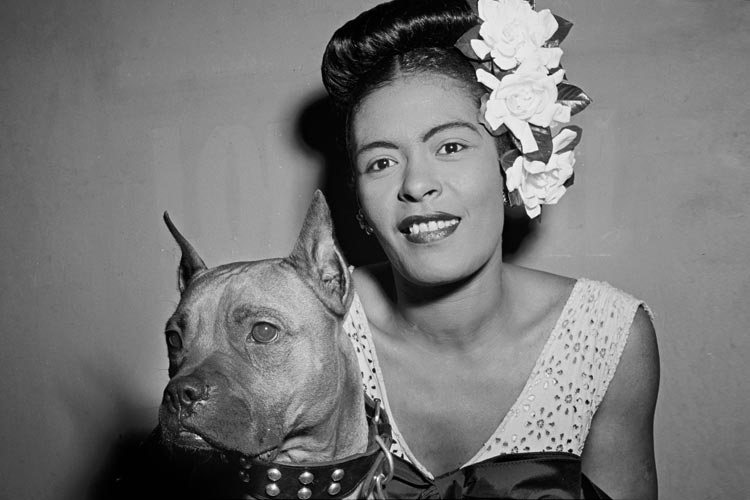Billie Holiday

Billie Holiday was a brilliant jazz singer, a great lyrical interpreter, she took chances, lived life hard,
she could swing, she could swoon, she moaned low, was elegant and she was a soul singer before anyone had
coined the phrase. She was one of the greatest jazz vocalists of all time.
Her vocal style, strongly inspired by jazz instrumentalists, pioneered a new way of manipulating phrasing
and tempo. She was known for her vocal delivery and improvisational skills.
Holiday won four Grammy Awards, all of them posthumously, for Best Historical Album. She was inducted into
the Grammy Hall of Fame and the National Rhythm & Blues Hall of Fame. She was also inducted into the Rock &
Roll Hall of Fame, though not in that genre; the website states that "Billie Holiday changed jazz forever".
Several films about her life have been released, most recently The United States vs. Billie Holiday (2021).
Throughout her career, Holiday faced racial discrimination. Certain laws created racial segregation in
public spaces, and Holiday
sometimes found herself singing in clubs which refused service to black folks. Her 1939 version of "Strange
Fruit," a song about lynching, was described as the most haunting and sad "expression of protest against
man's inhumanity to man that has ever been made in the form of vocal jazz."